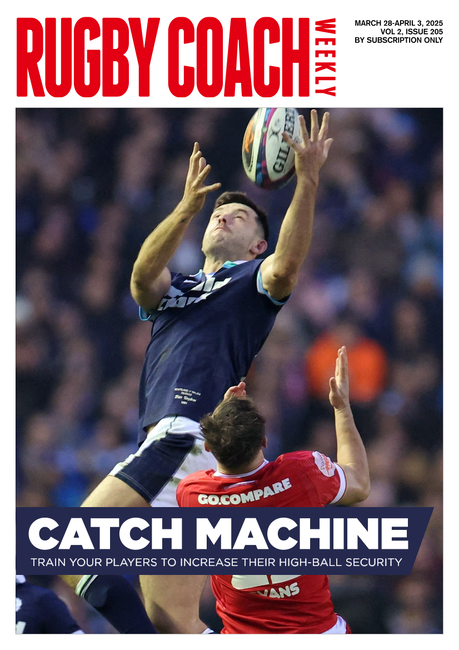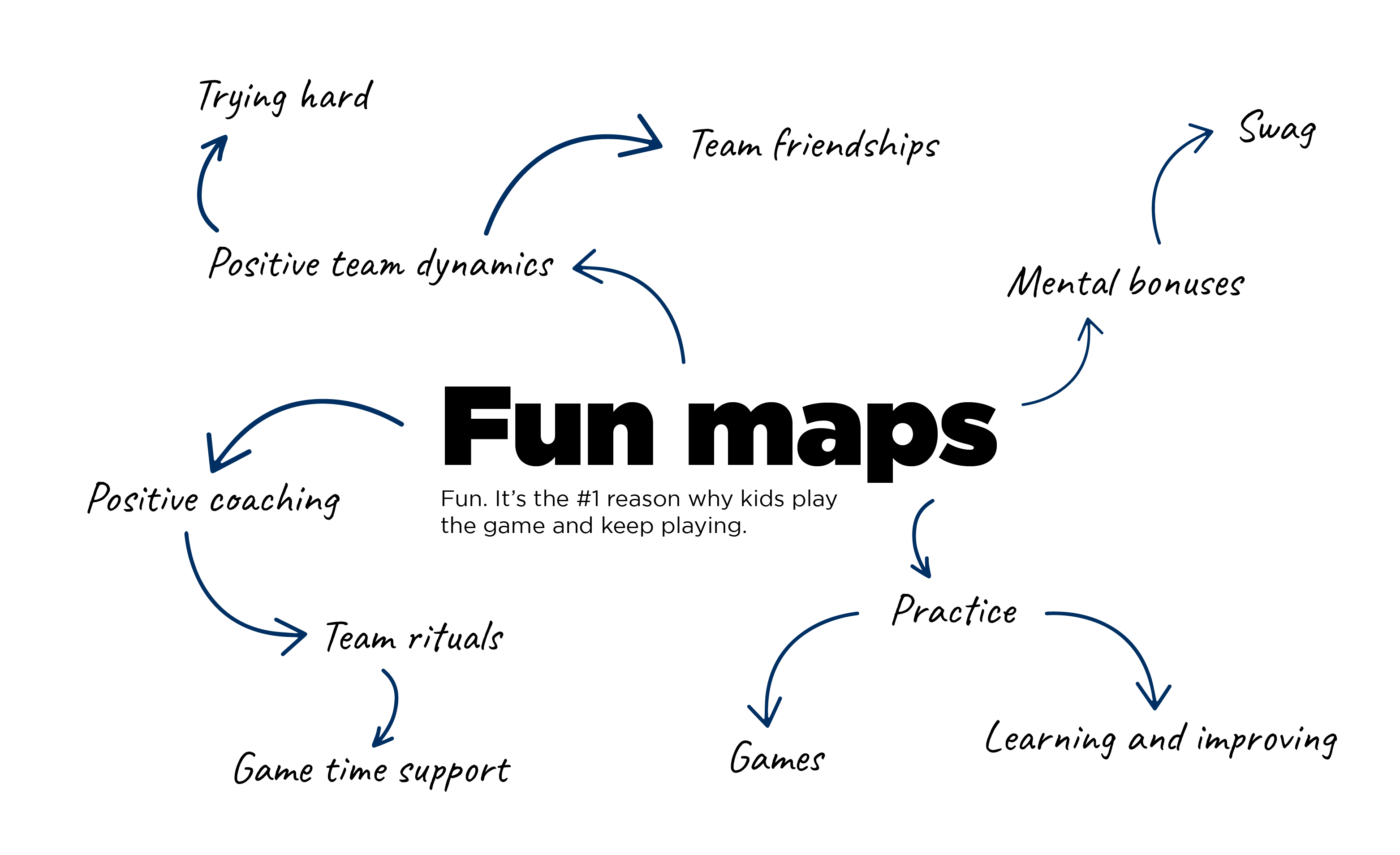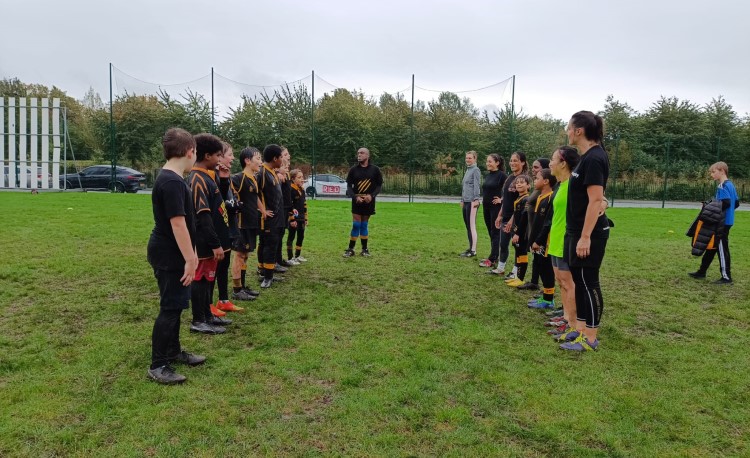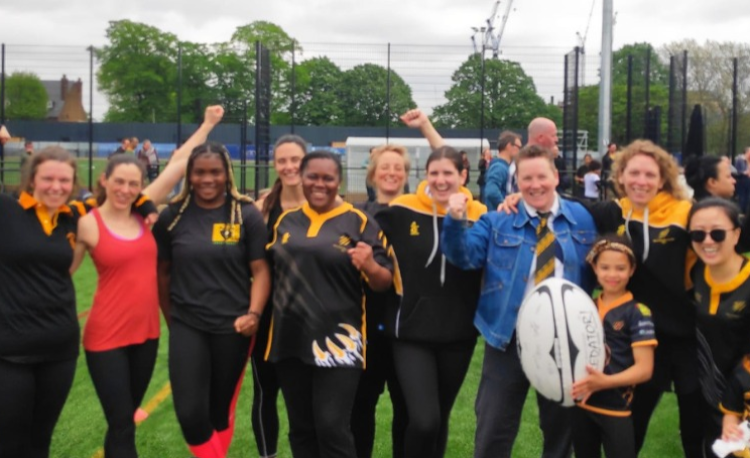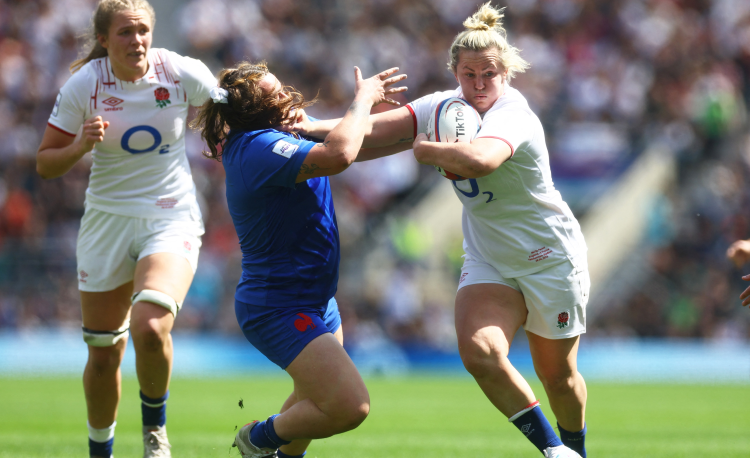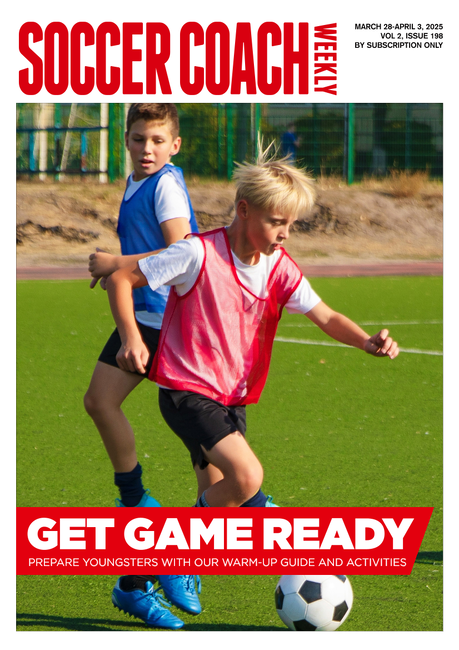4 great replies to misconceptions about the women's game

While the women’s game is growing impressively, with an increase in 27% registered players worldwide from 2017 to 2019, so is the level of misguided comment. Here’s a guide to dealing with four of the most common forms of criticism.
A recent BBC survey detailed the sexism experienced by an elite female athlete. Even more recently, former England rugby superstar Danielle Waterman made her men’s Six Nations commentary debut. The comments on social media critiqued her performance simply because she is a woman.
Let's have a plan to reply to the most common forms of criticism.
01 WOMEN DON'T PLAY PROPER RUGBY
Firstly, let's challenge the assumption of what is “proper rugby”. Rugby can take on many forms. Games of touch and Ready4Rugby have provided a lot of fun, skill development and challenge during Covid-19.
However, if you’re assuming that women don’t play full contact rugby, then yes we do. Women’s rugby is the just the same as men’s rugby: 15-a-side, on a full length pitch, 8 in a contested scrum, lifting in the lineouts and our tackles are pretty hard.
02 FEMALE PLAYERS ARE ALL LESBIANS
Just like any other sports team or organisation, a women’s rugby team is made up of a diverse group of people, diverse political views, ages, life experiences, religions, ethnicities and sexual identities. More significantly, the phrase creates a negative view of female sexuality. This should always be challenged, as much as you would challenge a racial reference.
In a rugby context, it creates an assumption of what a female rugby player looks like. Instead, we should celebrate the diversity within a rugby team: showcase women’s rugby as a place for different body shapes and sizes.
03 GET IN THE KITCHEN AND MAKE US A SANDWICH
Thankfully it has been a while since I’ve been within earshot of this remark, but it still gets floated around social media.
On hearing this in person, I will say: Though I am on occasion an average cook in the kitchen, I am a better rugby player, and far more comfortable on the pitch.
A joke at my own expense takes the power away from the person who made the remark and hopefully goes some way to challenge their preconceptions about what a woman is able to be.
Sometimes, it’s better to take that approach than go immediately on the attack
04 YOU DON'T KNOW ANYTHING ABOUT THE GAME
It’s true that a lot of women discover rugby when they’re an adult and learn how to play and all about the game through training. They pick up a love for it and a self-confidence rises.
However, just because some women are new to the game doesn’t mean all women are. Like all good coaches, everyone is willing to learn.
Instead of assuming knowledge or lack of, why not open a dialogue with your fellow coaches, by saying: “I love the game and have done for the last X number of years. I would love to learn more, so let’s chat about what’s happening here. What would you do differently?”
YOU'RE SO WRONG
1. We play the exact same laws. And with the same intensity too.
2. We celebrate diversity, just like every sport and every part of society.
3. We may be good or bad cooks, but we are really comfortable on the rugby pitch, in fact in some cases more so.
4. I'd love to learn more about the game and discuss my own views on tactics, training and development. Let's talk.
Newsletter Sign Up
Coaches Testimonials
Subscribe Today
Be a more effective, more successful rugby coach
In a recent survey 89% of subscribers said Rugby Coach Weekly makes them more confident, 91% said Rugby Coach Weekly makes them a more effective coach and 93% said Rugby Coach Weekly makes them more inspired.
Get Weekly Inspiration
All the latest techniques and approaches
Rugby Coach Weekly offers proven and easy to use rugby drills, coaching sessions, practice plans, small-sided games, warm-ups, training tips and advice.
We've been at the cutting edge of rugby coaching since we launched in 2005, creating resources for the grassroots youth coach, following best practice from around the world and insights from the professional game.

